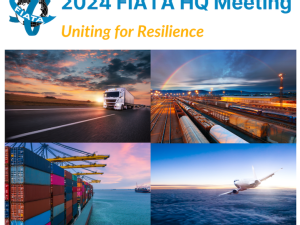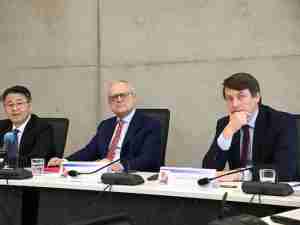Rolls-Royce said in a separate statement that Cathay's newly ordered Airbus A330 will be powered by its Trent 700 engines.
To offset the impact of soaring fuel prices, Cathay may follow its rivals, including Qantas Airways , in raising its fuel surcharge, analysts say.
However, carriers, many of which also hedge in the oil market, would not be able to fully pass additional costs to customers, and that would bite into their profits.
Cathay profits rose to HK$7.2 billion ($924.3 million) for the second half of last year, its best-ever six-month profit. That marked an 86 percent increase over the year-earlier profit of HK$3.88 billion, a Reuters calculation shows.
The result beat the consensus forecast of HK$5.64 billion from 14 analysts polled by Thomson Reuters I/B/E/S. Full-year earnings were also a record level.
"These are very good results. But now oil prices are high. Going forward, this is a big concern," said Dale Tsang, managing director at Imperial Dragon Asset Management in Hong Kong.
"All airline stocks now are high-risk investment," he said.
Globally, the highly cyclical industry is facing rising costs. International oil prices hit a 2-1/2 year high recently, with U.S. crude staying above $100 per barrel due to unrest in Libya.
Global airline net profits would halve this year as rising costs, especially oil prices, offset increasing demand, the International Air Transport Association (IATA) said last week.
IATA, whose 230 members include Singapore Airlines and Deutsche Lufthansa AG , expects global net profit to be $8.6 billion this year, down from $9.1 billion forecast in December.
Oil Prices Weigh
Cathay, which suffered heavy losses during the global financial crisis in 2008, said its results this year could be hit by high oil prices that might derail the global economic recovery.
"Demand is at present expected to remain strong in 2011, but this expectation could be undermined if the current (or any higher) level of oil prices were to reduce global economic activity," Chairman Christopher Pratt said in a statement.
Some analysts say Cathay's aircraft purchase in March is also aimed at replacing part of its existing fleet slated to be retired by the end of this decade, but it underscored its confidence in its business prospects.
"Apparently, the management sees the growth potential and we have confidence in the team. There should be no over-capacity concerns," said Kevin Lau, an analyst at Daiwa Securities.
Strong demand for air travel in the Asia-Pacific region and a recovery in international cargo flows helped Cathay, its partner Air China Ltd , and some other regional carriers post record earnings last year.
Air China, the world's most valuable airline, had estimated 2010 net profit to be more than double from 2009, although smaller rival Singapore Airlines Ltd reported a decline in earnings to December because of provisions for a fine by the European Commission on cargo price-fixing.
Cathay's full-year earnings rose to HK$14.05 billion, a record annual profit, helped by asset disposals.
The company had forecast a net profit of at least HK$12.5 billion for 2010, against a profit of HK$4.69 billion for 2009. (Reuters)











